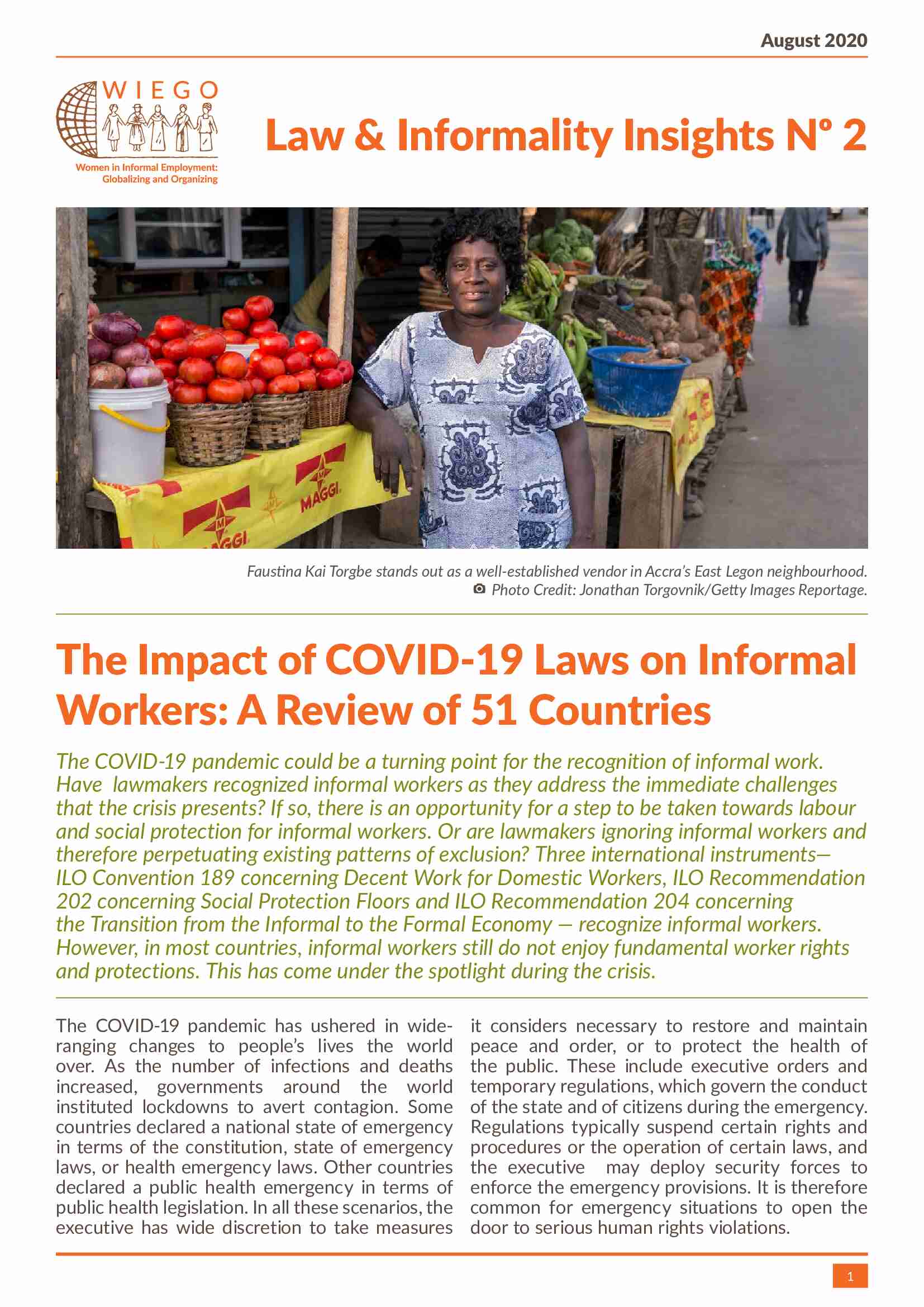The Impact of COVID-19 Laws on Informal Workers: A Review of 51 Countries
The COVID-19 pandemic could be a turning point for the recognition of informal work. Have lawmakers recognized informal workers as they address the immediate challenges that the crisis presents? If so, there is an opportunity for a step to be taken towards labour and social protection for informal workers. Or are lawmakers ignoring informal workers and therefore perpetuating existing patterns of exclusion? Three international instruments — ILO Convention 189 concerning Decent Work for Domestic Workers, ILO Recommendation 202 concerning Social Protection Floors and ILO Recommendation 204 concerning the Transition from the Informal to the Formal Economy — recognize informal workers. However, in most countries, informal workers still do not enjoy fundamental worker rights and protections. This has come under the spotlight during the crisis.
This edition of Law and Informality Insights analyses the COVID-19 laws with an informal worker lens, with a particular focus on domestic workers and street vendors. WIEGO’s Law Programme collected and collated the COVID-19 laws in some 51 countries in Africa, Asia and Latin America. We collected laws available in English, French, Portuguese and Spanish from government websites, legal databases, government media releases and social media. Where the laws were not readily accessible on the internet, the team obtained the laws directly from citizens and government officials in the relevant countries. The laws cover the period of 1 March until the first week of May, when many countries were still at the height of the lockdown.
View list of all: Law & Informality Insights

